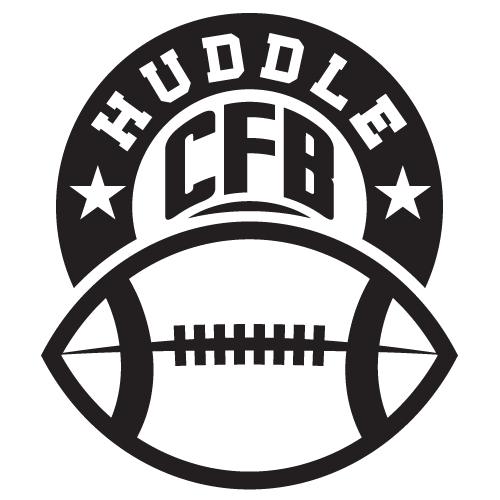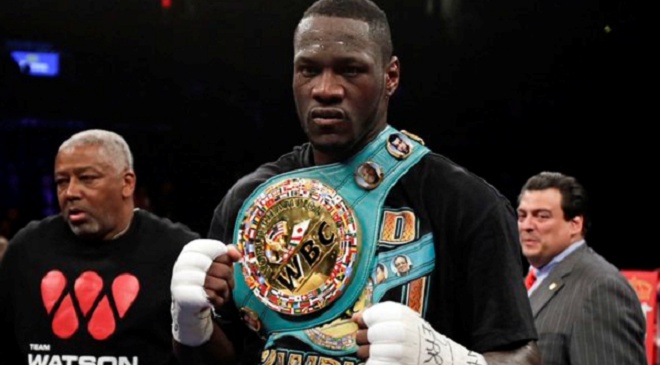Alabama added another notch in its championship belt Saturday when WBC Heavyweight champion Deontay Wilder scored a ninth-round knockout victory over Polish challenger, Artur Szpilka.
.@BronzeBomber knocks out @szpilka_artur in round 9 and retains his WBC heavyweight title #AndStill #WilderSzpilka https://t.co/aB8J3liY8T
— SHOWTIME SPORTS (@SHOsports) January 17, 2016
Tuscaloosa-born Deontay Wilder’s third successful title defense came just five days after his beloved Crimson Tide beat Clemson for this 16th claimed national championship, though the heavyweight champ’s title bout resonated far less on the national sports landscape.
Wilder is the first American heavyweight champion in almost a decade — though Los Angeleno Charles Martin joined him Saturday by winning the vacant IBF Championship. The proliferation of belts doesn’t help the sport, but I digress.
Deontay Wilder has made efforts to reignite America’s passion for pugilism, including tying in his love for Alabama football with his place atop the boxing world. Wilder sported an Alabama knit cap at Wednesday’s promotional event in Freedom Tower, and the champion appeared alongside Nick Saban at an IndyCar event last spring.
In the above clip, Ryan Hunter-Reay jokingly lays out some unfortunate truth when he says he and Wilder are “two guys who don’t get enough pub.” Boxing is closer to auto racing in the American sports scene than it is big-time college football.
However, football should look to boxing as a warning.
Boxing’s languished in the doldrums of American sports for more than decade, and certainly its popularity now is a fraction of what it had been generations ago. Myriad factors contributed to boxing’s fall, most of which we won’t get into here, seeing as this isn’t a boxing website.
But the failing health of boxing legends from the sport’s glory years cast its violent nature in a different light. It mirrors the underlining conversation about football now on the gridiron’s front door.
Football’s inherent dangers gaining more attention sparks debate among parents if they would let their children participate. Increasingly, the answer is no, as a late 2014 Associated Press poll illuminates. 44 percent of respondents said they were uncomfortable with the idea of their children donning the pads and helmet.
Sports agent Leigh Steinberg, a vocal supporter of safety reforms in football, compared football’s participation in the near-future to that of boxing: a necessary risk for impoverished athletes to escape hardships.
With such concern growing, a new narrative has cropped up among certain football advocates; “war on football.”
I first saw this phrase used last month by ESPN analyst and former Florida State quarterback Danny Kanell.
The war on football is real. Not sure source but concussion alarmists are loving it. Liberal media loves it. Doesn't matter. It's real.
— Danny Kanell (@dannykanell) December 8, 2015
Now, it’s worth noting Kanell’s recent ascent in prominence on the Worldwide Leader’s outlets coincides with his trolling of a large section of the college football fan base. So, when he dismisses CTE research as a “war on football,” it’s easily dismissed. Ditto Jason Whitlock, the self-appointed arbiter of journalism and “thirst,” who quickly hitched his wagon to Kanell’s concept.
Just about anything with a “War on” label is reactionary, conspiracy-theorist, doomed to failure or all of the above. Two unabashed trolls affixing it to their pseudo-cause hardly signifies the beginning of public groundswell.
However, it’s not as easy to write off a head coach speaking at the AFCA convention. Cincinnati’s Tommy Tuberville didn’t use the phrase “war on football,” but chose synonymous language to deride the push for safety reform.
Cincinnati coach Tommy Tuberville (and AFCA president): "Football is under attack." pic.twitter.com/B76OK9h3G1
— Adam Rittenberg (@ESPNRittenberg) January 11, 2016
Tuberville doesn’t exactly shy away from preposterous conspiracy theory, but he is a prominent enough figure in the coaching community that his publicly adopting this “war on football” concept should draw attention.
The way to meaningful safety reform isn’t made by sticking ones head in the sand, nor via outright dismissal of valid concerns. A man like Leigh Steinberg, who made millions and gained fame representing football players, has nothing to gain starting a war on the sport.
On the contrary, continued efforts to improve football’s safety and ensure the long-term health of its participants will also help the long-term outlook for the sport. The alternative is a future wherein the Alabama Crimson Tide appeal only to a niche audience, as has become the reality for fellow Tuscaloosa-based champion Deontay Wilder.


